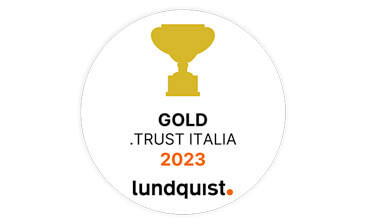Acea’s strategic planning takes account of both its industrial dimension and sustainability aspects, facilitating “integrated thinking”.
Our Group serves the people and the local communities. This role makes us aware of both our responsibility towards our stakeholders and the economic, social and environmental impacts that we generate.
Acea’s strategic planning takes account of both its industrial dimension and sustainability aspects, facilitating “integrated thinking”.
We have defined the strategic, industrial and sustainability plan with a view to enhancing our capacity to create value over time not only for the business but also for the local community, society and the natural environment and, more generally, for all stakeholders.
Strategic planning projects us towards increasingly challenging goals, consolidating the integrated vision between business and sustainability: the new “Green Diligent Growth” Business Plan, which is steering us through a highly evolving situation, characterised by the energy transition “Trilemma”, growing attention to the development of new competencies and technologies and the scarcity of natural resources, prompts us to develop sustainable infrastructures, generating shared value.
Acea ranks among Italy’s 2023 leaders of sustainability
The third edition of the Sustainability Leaders survey, conducted by Il Sole 24 Ore in collaboration with Statista, ranks Acea among the 240 most sustainable and transparent Italian companies in reporting. The study considered around 1,500 Italian firms which publish a sustainability report, measuring them based on 45 environmental, social and governance parameters. The 240 highest-scoring companies – calculated on a scale of 0 to 100 as regards each of the dimensions analysed – were announced as part of the Sole 24 Ore report.
In the 2024-2028 Business Plan, sustainability assumes growing importance as a structural element underlying the Group’s business and operational management decisions. In fact, we provided for sustainability investments totalling around €5.5 billion, in line with the SDGs.
The Group’s sustainability objectives are precisely explained in the sustainability report, currently being revised, in keeping with the guidelines of the new Business Plan, which already highlights the connection between industrial capex, sustainability aspects and SDGs.
The Group’s sustainability targets are accurately described in the sustainability report, which represents the strategic tool whereby we define our commitment to progressively integrate the principles of sustainable development into the company’s management and the growth of its businesses.
The next Sustainability Report, currently being prepared, will cover the same time horizon of the new 2024-2028 Business Plan and will be consistent with the business development guidelines, ESG commitments and the relevant SDGs.
The 2020-2024 Sustainability Plan, which is currently still valid, comprises two levels:
Acea joins the Manifesto “Business for People and Society”
In June 2024, Acea signed the Manifesto “Businesses for People and Society”, a document drawn up by the UN Global Compact Network Italy. This document is addressed to the business organisations that are committed to strengthening the social dimension of their strategies in order to generate a long-term development for the whole value chain and for the communities in which they operate.
The UN Global Compact Network Italy is the local section of the UN Global Compact. This special initiative of the UN Secretary-General aims to guide and support the global business community in the promotion of the United Nations’ goals and values through responsible and sustainable good practices.
Acea Green Bond
To give further momentum to sustainability, Acea has placed two Green Bonds, the first issued already in 2021 for the amount of 900 million Euro and the second issued in 2023 for another 700 million Euro. These bond issues come under Acea’s Green Financing Framework, in line with the Group’s financial strategy: the proceeds will be used to fund projects with positive impacts on four main areas: management of water resources, energy efficiency, development of the circular economy and increased energy generation from renewable sources.
Discover the latest news and initiatives of the Acea Group

Acea for World Energy Saving Day

Visit the virtual museum about the history of the Acea Group

The channel for the commercial requests on land urbanisation

Acea turns the spotlight on the Rome Film Festival 2023

Acea is in the "Gold class" in the .trust research

Read more about our culture of inclusiveness